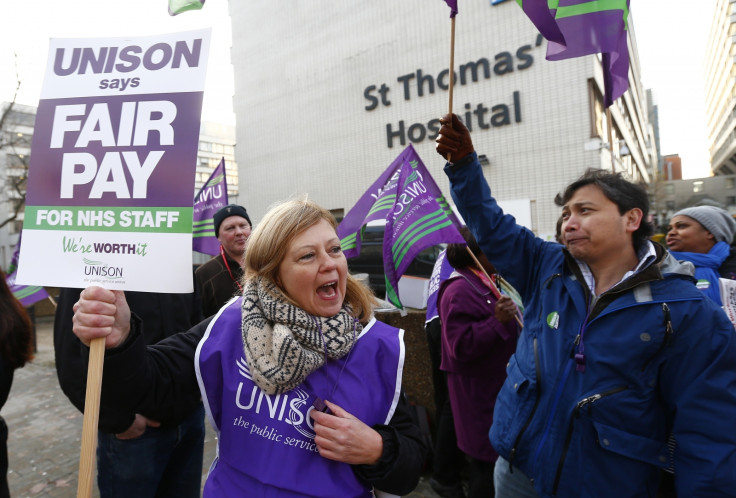NHS England Strike: Why Meagre Pay Offer Caused Thousands of Health Workers to Walk Out

Thousands of NHS England staff went on strike again in a four hour walkout on 24 November over a pay dispute.
Among them were nurses and ambulance drivers. For the rest of the week they'll be on "work-to-rule" - meaning they will only fulfil the requirements of their contract and not work any overtime.
How big is the NHS?
The NHS employs more than 1.7 million people. Of those, just under half are clinically qualified – including 39,780 general practitioners (GPs), 370,327 nurses, 18,687 ambulance staff, and 105,711 hospital and community health service (HCHS) medical and dental staff.
Only the Chinese People's Liberation Army, the Wal-Mart supermarket chain and Indian Railways directly employ more people.
The NHS in England is the biggest part of the system by far, catering to a population of 53 million and employing more than 1.35 million people. The NHS in Scotland, Wales, and Northern Ireland employs 153,427, 84,817, and 78,000 people respectively.
The NHS deals with over 1 million patients every 36 hours.
Source: NHS.UK
But what exactly are the 12,500 workers from nine unions, who represent 450,000 NHS staff in all, taking action for?
The government is in the middle of an austerity programme to cut its spending and erase the deficit in public finances, which is currently equivalent to around 6% of GDP.
Part of that programme has included a 1% cap on pay rises for public sector workers.
A 1% pay rise across the board for NHS workers – and other public services – was recommended by the independent Pay Review Bodies (PRB) which advises the government.
Because price inflation is higher than this – it came in at 1.3% in October having fallen from a 5.2% peak in 2011 – the 1% rise is actually a pay cut in real terms. Unions were reluctantly ready to accept this.
But having accepted the PRB recommendations for others in 2014/15, including prisons and the Armed Forces, the government rejected it for the NHS in England.
Which is why health workers are more than a little peeved. Instead, this is what the government has offered:
A 1% pay rise for those at the top of their pay bands and on a progression pay deal, which is around 40% of NHS staff.
Those on progression pay go up incrementally as they meet certain targets and skills competencies to move to the next pay level.
For example, the nurses pay band goes from £21,000 to £27,000. In order to get from the bottom to the top they must become skilled in certain areas and progress step-by-step, which takes several years.
Under the government's pay offer, those who have already reached the top of their pay bands – nurses earning £27,000, for example – will get a 1% rise.
A 1% non-consolidated pay rise for the other 60%, but only for two years.
What "non-consolidated" means is that it isn't included in the basic salary. The 1% pay rise is really just a payment spread out monthly and then taxed.
So things like pension payments and the hourly wage (which is important for overtime, something NHS staff routinely do) aren't going up at all.
What's more, in April 2016 this offer will expire – and staff will go back to earning what they did in 2013, despite the ever-rising cost of living in the UK.
Unison, a large health workers' union, said a third of NHS staff don't earn enough to live on as it is because they are paid under £21,000 a year. Bands 1 and 2 for NHS pay include administration and catering staff, among others. Pay varies from £14,000 to £17,000 – below the living wage.
The NHS is facing a funding crisis. There's a reported £30bn hole in its finances. Through its pay offer, the government will save just £200m in 2014-15 and around £400m in 2015-16.
"NHS staff are our greatest asset and we want to make the current pay system fairer," said a spokesman for the Department for Health.
"Which is why we have put forward proposals that would guarantee all staff would get at least a 1% pay rise this year and next, but these have been rejected by the unions.
"We have taken tough decisions to increase the NHS budget, but we can't afford a consolidated pay rise in addition to increments without risking 10,000 front line jobs."
© Copyright IBTimes 2025. All rights reserved.






















